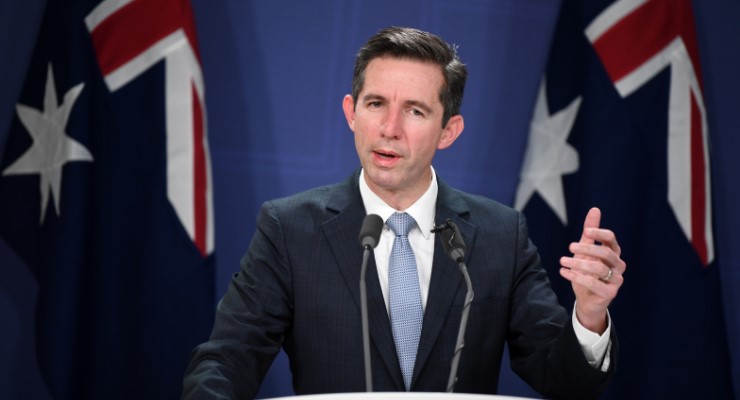
It’s dirty, it’s black, Matt Canavan loves to rub it on his face. But what else do we know about Australian coal and what happens now that we can’t sell it to China?
Here’s Crikey’s handy Q&A to help you understand the latest trade dispute with Beijing.
What’s the export ban to China all about?
China state-owned media has reported that Beijing has formally blocked imports of Australian coal. The reports make official an informal ban on coal exports, which began earlier in the year, leaving dozens of bulk carriers stranded offshore.
It’s the latest stoush in the escalating trade war between China and Australia which began with Australia’s push for a coronavirus inquiry back in April.
So is the coal just sitting in the ground?
Yes, some of it is. Some of it is adrift on carriers, or stuck at terminals like Newcastle.
Can we just sell to someone else?
Yes. There are logistical problems, and you might get a lower price, but according to energy analyst Tim Buckley, “coal is coal”. “At the end of the day if we don’t send it to China, we can send it to Korea, we can send it to Japan, India, Vietnam.”
The bigger problem is the political one. Japan, Korea and China have all committed to net zero emissions by 2050, meaning that they will move away from thermal coal entirely in the next 30 years. Even Wood Mackenzie, the fossil fuel industry’s go-to forecasters, has predicted demand for coal from those three markets will drop 90 plus percent.
Is China our biggest buyer of coal?
Actually Japan is, but Japan is also buying less these days. Other smaller buyers include India, Turkey, Qatar and Myanmar.
So what is the impact on Australia?
It’s unclear, but certainly not the $14 billion hit to Australia’s budget that some media outlets have reported.
“The federal government gets nothing from coal anyway because companies like Glencore don’t pay tax and the royalties go to state governments,” Buckley said.
Other analysts say it could even be an “own goal” for China, with domestic shortages elsewhere in the world leading to a spike in Australian thermal coal prices despite the ban.
And even with this dispute over coal, Australian mining is having the best year ever thanks to soaring demand for iron ore.
“Profits from the mining industry will never be higher than 2020,” Buckley said.
So what happens next?
Trade Minister Simon Birmingham has suggested he could make a complaint about China to the World Trade Organization (WTO). Although complaining about our biggest trading partner doesn’t come without risks, and China doesn’t respect the WTO, so it’s unclear what that would achieve.
What Australia could do is use this as an opportunity to reprioritise and focus on new markets to the future, Buckley said.
But do the coal companies want to do that? “Absolutely not”.








Our PM brought his pet coal to Parliament- perhaps he can ask Santa that all Australian’s take in at least one lump for a pet? This year? If the novelty wears off in the New Year they can be discretely buried fo a Future Christmas.
Perhaps he could hold a press conference; hold up his pet coal; and ask if anyone out there wants to buy it…
Ahhh , you folks, uneducated the lot of you.
You just don’t get it do you.
That wasn’t a lump of coal, Scott was introducing a distant family member to his peers. That was a Coprolite.
Birmingham could do his job and actually talk to our trading partner. Possibly setting up a Leaders meeting between the countries. But then again a lot of the problem was caused by our leader, so that may not work either.
But then again he is a Liberal and they still believe that they run the world.
He needs to go and go soon. I believe it is happening, but who will replace him?
Morrison also needs to go, but who replaces him?
We are cooked.
“But then again he is a Liberal and they still believe that they run the world.”
He would be in a spot of bother there. The Middle Kingdom knows they rule the world. All those that live outside are only barbarians. 😉
There just must be something that China desperately wants that only we have, so that we could apply our own blow torch?
I think we should do what we should have done back in the 1980s when Japan was playing ducks and drakes with our Iron Ore exports and just stopped all exports until they came to their senses.
Literal stranded assets.
Buckley is pretty badly informed for an energy analyst if he thinks that its as simple as “coal is coal”